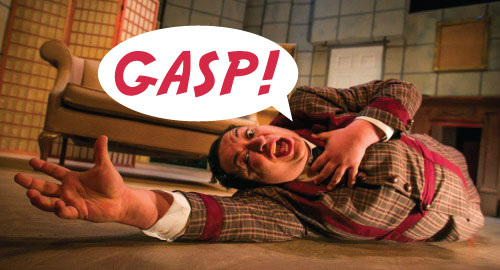Kill that Writer’s Block (3 strategies)!

I know that plenty has been written on this topic, but while the first 2 techniques that I propose below may or may not work for you, please do try the 3rd one, as it has really changed my life!
-
Breaking writing tasks into smaller ones.
“The secret of getting ahead is getting started. The secret of getting started is breaking your complex overwhelming tasks into small manageable tasks, and then starting on the first one.” — Mark Twain

In my other post where I wrote about strategies for managing your thesis/dissertation, I have already discussed breaking larger tasks into smaller ones, so you may read about the benefits of this approach there. These benefits also apply to writing. To both overcome and prevent writer’s block, I like to set myself small and realistic writing tasks which I know I can accomplish – therefore, as I finish, I will experience a sense of success (“I managed to write 500 words today, as planned – tomorrow I’ll do another 500”), rather than a sense of failure which, in my opinion, is the first step towards developing a sense of being stuck (“I didn’t manage to write the 3000 word essay today – Writer’s Block!!”).
-
Getting time off the computer screen.
“If you get stuck, get away from your desk. Take a walk, take a bath, go to sleep, make a pie, draw, listen to music, meditate, exercise; whatever you do, don’t just stick there scowling at the problem…” – Hilary Mantel

It always helped me to take a walk, although during this walk I wouldn’t really take my mind off work, but rather imagine I’m talking to someone non-academic (e.g. a member of the family), in simple words, about the bit I am stuck at (so, for example, I am describing my research rationale, talking about the literature on the topic, talking about findings that emerge from my analysis, etc.). I would soon find myself amazed at how effortlessly I can formulate my ideas once I am no longer constrained by the academic writing requirements and the blank computer screen in front of me. Sometimes I would write these ideas down in the researcher’s diary on my phone, and then got back to finish the thing as soon as I got home.
-
Free writing
Writing about a writer’s block is better than not writing at all. ― Charles Bukowski
The most effective way I know to improve your writing is to do freewriting exercises regularly. At least three times a week … simply write for ten minutes (later on, perhaps fifteen or twenty). Don’t stop for anything. Go quickly without rushing. Never stop to look back, to cross something out… If you get stuck it’s fine to write, “I can’t think what to say, I can’t think what to say” as many times as you want… The only requirement is that you never stop.” Elbow (1973: 3)

What is free writing? Writing for 5 (I also tried 10 and 15) minutes, with no stopping, no structure, about what you want to write about next…
You can do this as a warm-up for writing, to get into the habit of regular writing, or even to look for topics to write about. You will be surprised how much you can produce this way, when you don’t think of your writing as something that will be assessed by your supervisors, but rather as something being a very personal and private connection between you and your study. This will foster the sense of personal “success” that I mentioned in point 1, as well as boost your confidence.
As soon as I got into the habit of freewriting, I did it on a regular basis, and also every time when I felt that writer’s block has started to “creep in” again – and it worked Every Time. I wrote about what I want to write next, but also about my previous ideas and reflections, about my observations and opinions about the topic I’m studying, etc. (depending on which stage of writing I was at – in many ways freewriting worked similar to what I described in point 2 – all of a sudden, I could express my ideas freely).
You can read a lot more about free writing, as well as about various aspects of writing a thesis in this great book by Rowena Murray.
I also discuss freewriting in my online self-study course “Dr Kriukow’s dissertation training – Part 1” and in the following video:
What has worked for you in terms of overcoming Writer’s Block? Please share in the comments or on my Facebook page
References
Elbow, P. (1973). Writing Without Teachers. Oxford: Oxford University Press.
